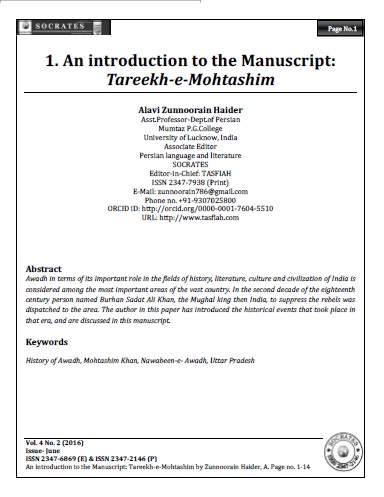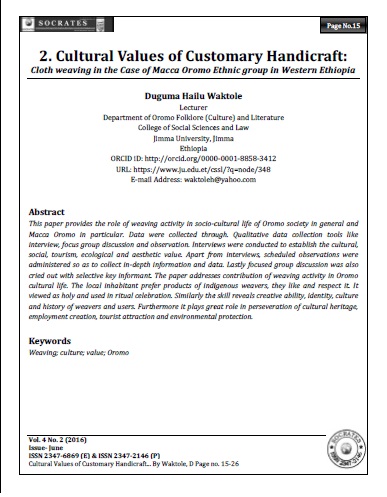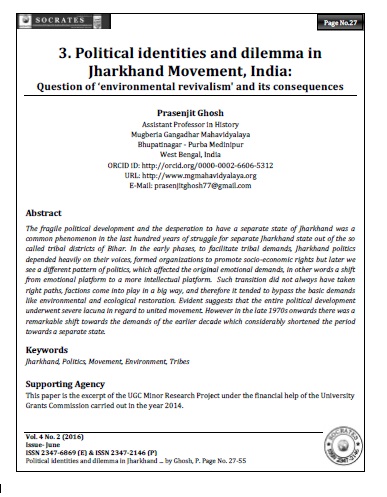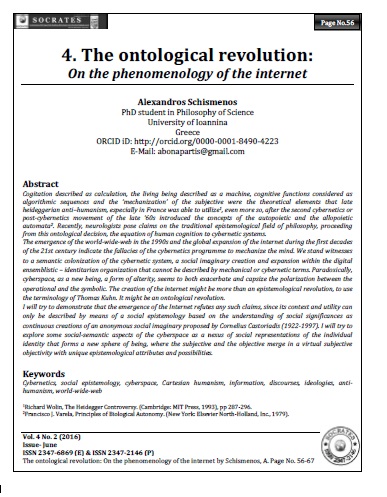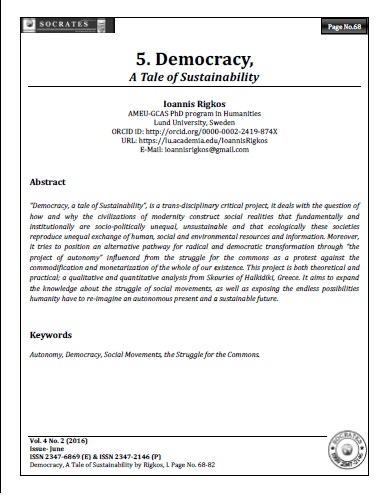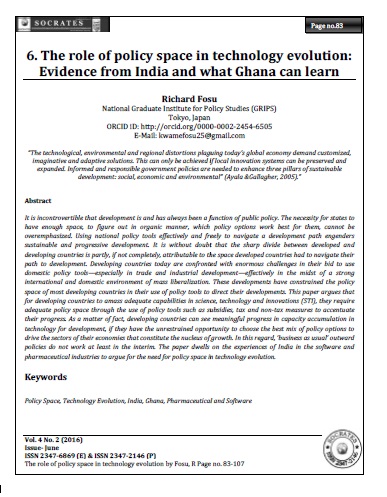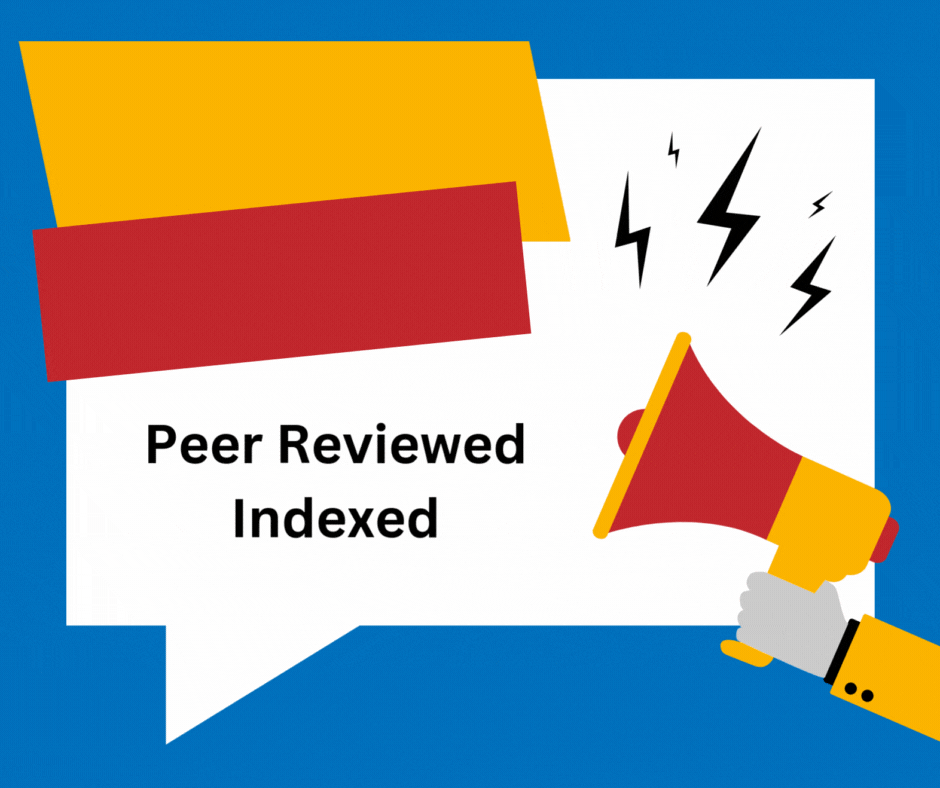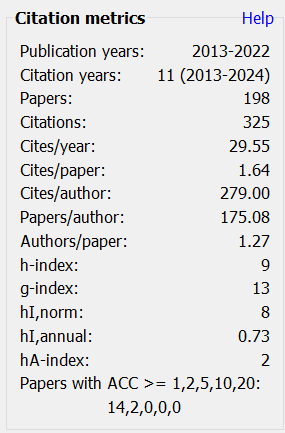Vol. 4 No. 2 (2016): Issue - June

About this issue:
This issue of Socrates has been divided into five sections.
The first section of this issue is Language & Literature- Persian. The article in this section introduces a Manuscript that highlights the 18th Century History of Awadh India.
The second section of this issue is Anthropology. The article in this section provides the role of weaving activity in socio-cultural life of Oromo society in general and Macca Oromo in particular. It also highlights how weavers play a great role in perseveration of cultural heritage, employment creation, tourist attraction and environmental protection in these areas.
The third section of this issue is History. The paper in this section is the excerpt of the UGC Minor Research Project under the financial help of the University Grants Commission carried out in the year 2014. This paper highlights Political identities and dilemma in Jharkhand Movement, India and raises Questions of ‘environmental revivalism' and its consequences.
The fourth section of this issue is Philosophy. The first article in this section tries to demonstrate that the emergence of the Internet refutes any claims posed by neurologists on the traditional epistemological field of philosophy, proceeding from this ontological decision, the equation of human cognition to cybernetic systems. The paper also explores some social-semantic aspects of the cyberspace as a nexus of social representations of the individual identity that forms a new sphere of being, where the subjective and the objective merge in a virtual subjective objectivity with unique epistemological attributes and possibilities.
The second article of this section deals with the question of how and why the civilizations of modernity construct social realities that fundamentally and institutionally are socio-politically unequal, unsustainable and that ecologically these societies reproduce unequal exchange of human, social and environmental resources and information. Moreover, it tries to position an alternative pathway for radical and democratic transformation through “the project of autonomy” influenced from the struggle for the commons as a protest against the commodification and monetarization of the whole of our existence. It aims to expand the knowledge about the struggle of social movements, as well as exposing the endless possibilities humanity have to re-imagine an autonomous present and a sustainable future.
The fifth section of this issue is Politics, Law and Governance which contains an artilce that dwells on the experiences of India in the software and pharmaceutical industries to argue for the need for policy space in technology evolution.

